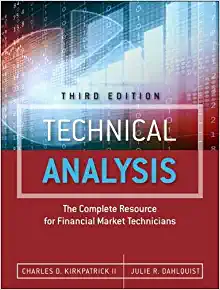Answered step by step
Verified Expert Solution
Question
1 Approved Answer
Personal Financial Planning Week 2 Discussion Questions (6) Experts only! Scholarly responses are required. *Please answer each question individually and accurately. Must cite any and
Personal Financial Planning Week 2 Discussion Questions (6)
Experts only! Scholarly responses are required.
*Please answer each question individually and accurately. Must cite any and all references in APA format. Label each solution with the corresponding question. Copy and pasted solutions will NOT be accepted. Minimum 2-3 quality paragraphs per question
 Personal Financial Planning Week 2 Discussion Questions (6) Experts only! Scholarly responses are required. *Please answer each question individually and accurately. Must cite any and all references in APA format. Label each solution with the corresponding question. Copy and pasted solutions will NOT be accepted. Minimum 2-3 quality paragraphs per question Part A: Disposable Income 1. Identify and present all taxes you pay during the course of a typical year. Include taxes that are called fees (such fees are really taxes by another name). Some of the taxes you pay may have to be estimated (i.e., sales taxes). What is the percentage proportion of these taxes in relation to your income, andwith respect to your disposable income (that is, income after taxes)what are the implications insofar as your spending behavior is concerned? 2. What is taxable income and how do you know how much taxes are owed? Provide an example. 3. What is adjusted gross income (AGI)? How do you calculate AGI? Part B: Alternative Savings Vehicles 1. Identify the savings (investment) instruments you use or have used in the past (if you haven't used any, identify those that you are most likely to use). Now, identify a number of alternative savings (investment) instruments that you have not used (or are least likely to use). Compare your two lists. Analyze the trade-offs that emerge. Why have you selected certain instruments in the past? Why may you use specific savings (investment) instruments in the future? Why will you decide to not use certain instruments in the future? 2. What are the main types of financial institutions used by consumers? What are some of the differences between these institutions? Provide examples. 3. What factors determine whether a taxpayer will use the Form 1040EZ, Form 1040A, or Form 1040
Personal Financial Planning Week 2 Discussion Questions (6) Experts only! Scholarly responses are required. *Please answer each question individually and accurately. Must cite any and all references in APA format. Label each solution with the corresponding question. Copy and pasted solutions will NOT be accepted. Minimum 2-3 quality paragraphs per question Part A: Disposable Income 1. Identify and present all taxes you pay during the course of a typical year. Include taxes that are called fees (such fees are really taxes by another name). Some of the taxes you pay may have to be estimated (i.e., sales taxes). What is the percentage proportion of these taxes in relation to your income, andwith respect to your disposable income (that is, income after taxes)what are the implications insofar as your spending behavior is concerned? 2. What is taxable income and how do you know how much taxes are owed? Provide an example. 3. What is adjusted gross income (AGI)? How do you calculate AGI? Part B: Alternative Savings Vehicles 1. Identify the savings (investment) instruments you use or have used in the past (if you haven't used any, identify those that you are most likely to use). Now, identify a number of alternative savings (investment) instruments that you have not used (or are least likely to use). Compare your two lists. Analyze the trade-offs that emerge. Why have you selected certain instruments in the past? Why may you use specific savings (investment) instruments in the future? Why will you decide to not use certain instruments in the future? 2. What are the main types of financial institutions used by consumers? What are some of the differences between these institutions? Provide examples. 3. What factors determine whether a taxpayer will use the Form 1040EZ, Form 1040A, or Form 1040 Step by Step Solution
There are 3 Steps involved in it
Step: 1

Get Instant Access to Expert-Tailored Solutions
See step-by-step solutions with expert insights and AI powered tools for academic success
Step: 2

Step: 3

Ace Your Homework with AI
Get the answers you need in no time with our AI-driven, step-by-step assistance
Get Started


